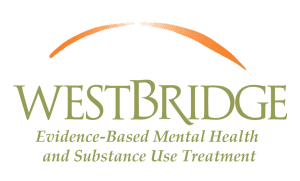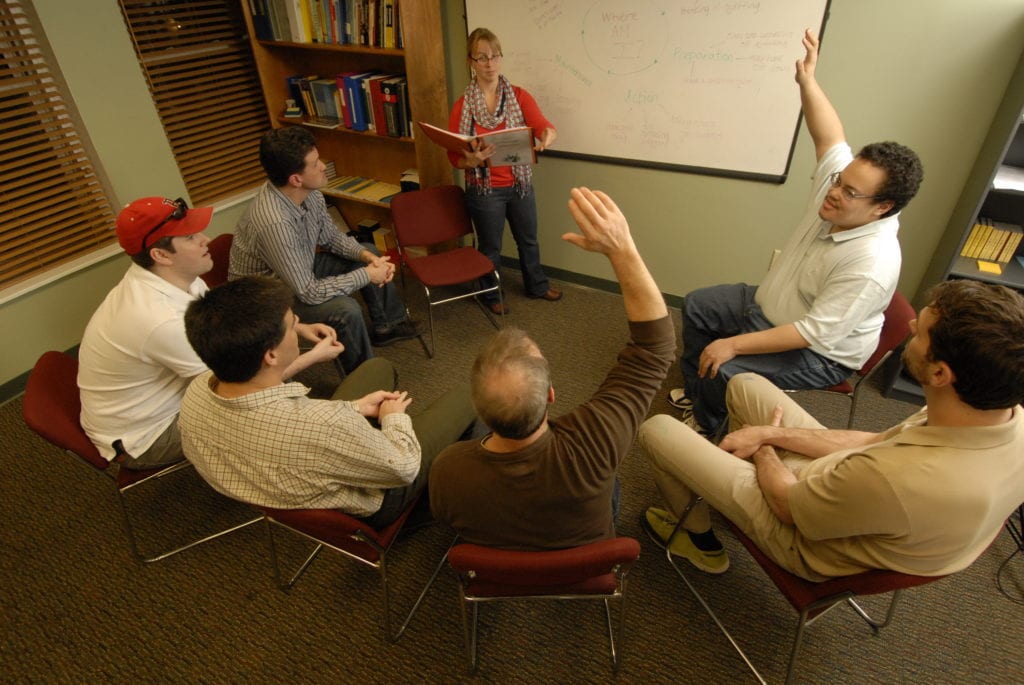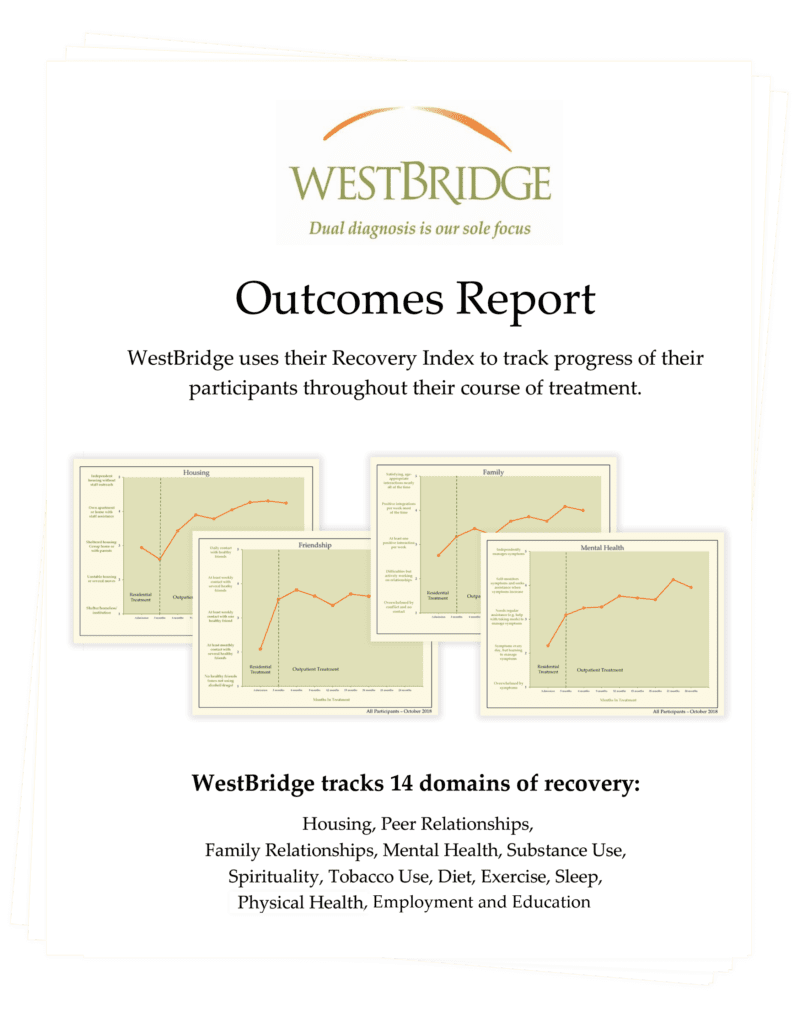WestBridge – Changes in recovery over time in the program
Valerie A. Noel and Robert E. Drake
WestBridge tracks the recovery of their participants every three months beginning at admission up to finishing the program. WestBridge tracks 14 domains of recovery: housing, friendship, family, mental health, substance use, spirituality, tobacco use, healthy eating, exercise, sleep hygiene, physical health, personal hygiene, employment and education. The data is reflected in 13 graphs shown below – combining education and employment into one graph. These domains are quantified by 5 scale point definitions assessing stage of change, where higher scores represent greater self-management, independence, and health depending on the relative domain.
Across all participants assessed at WestBridge, on average participants have shown tremendous gains in residential treatment. Men who continued with the WestBridge Assertive Community Treatment (ACT) program after residential treatment showed maintenance and/or improvement of these gains while in the outpatient programs. (ACT is now known as our Community Integrated Program (CIP) and we anticipate similar results).
Participants show significant success in achieving independent living, reaching/maintaining abstinence, independent control of their mental health symptoms, increased time spent with non-drug using friends, and independently managing their sleeping habits to maintain good sleep hygiene. Participants also show a significant increase in the number of hours worked and number of courses enrolled in higher education, improved relationships with family members, greater awareness of their spirituality, and independent management of their physical health.
Our latest reports are below for your review.
Mental Health Recovery: Our teams work closely with men at WestBridge to help them monitor and manage their mental health symptoms over time.
Substance Use Recovery: Our teams work closely with our participants at WestBridge to help them monitor and manage their substance use recovery. We actively work with men to help them commit to sobriety with long periods of abstinence.
Family: Relationships are such an integral part of sustaining recovery from co-occurring mental illness and substance use disorders. We work with participants and families to encourage positive and healthy interactions over the entire course of treatment.
Friendship: One of the most important aspects of recovery is developing healthy relationships. We encourage our participants to make friends and provide them with the skills to engage in healthy friendships, as well as to improve and maintain these healthy connections over time.
Housing: Throughout residential treatment at WestBridge, men learn the skills necessary to maintain independent housing. With assistance throughout their experience with the care management team we can see steady growth and continued skill building to maintain independent housing with assistance.
Education/Employment: As noted in the manual for Supported Employment “every job is a success.” We measure our outcomes and combine participants who are participating in college and employment. We have had many individuals complete college and graduate with a degree.
Spirituality: We continue to help our participants grow and live by their own values and understand their place in the world. Our spirituality outcomes measure how participants identify and begin to develop practices to help them sustain their recovery.
Tobacco Use: Statistics show that it takes seven attempts before individuals experience success in quitting nicotine. We work with our participants to develop ambivalence and move towards successful nicotine recovery.
Healthy Eating and Exercise: Nutrition and physical activity are important parts of brain health, and at WestBridge we work with participants to develop healthy eating habits and a new exercise regimen. Maintaining these new habits take time, energy, and effort. We work on both this with men in our residential program and help support these through their transition and into the Community Integration Program, as applicable. 
Sleep Hygiene: We know that vital brain functions occur during sleep. Sleep is a major factor in maintaining mental health and substance use recovery. We work with men throughout their treatment at WestBridge to help improve sleep patterns and to make lifestyle changes that support healthy sleep.
Physical Health: At WestBridge we work to help manage and sustain the physical wellness of participants. This dimension, along with healthy eating, exercise, and sleep is part of our holistic approach to treatment.
Personal Hygiene: Hygiene is an important factor in the overall wellness of an individual. At WestBridge we work with men to achieve active monitoring of their hygiene throughout the course of treatment, from residential and continuing into the Community Integration Program.









